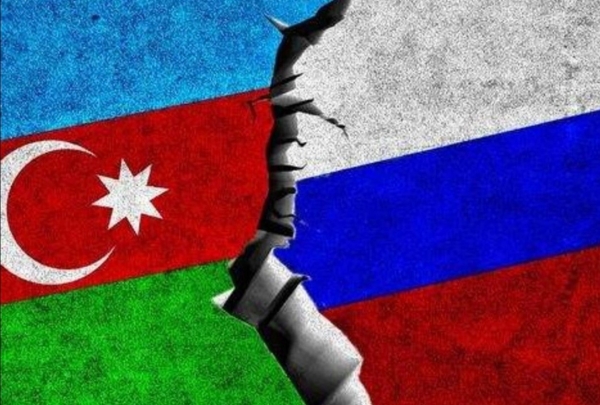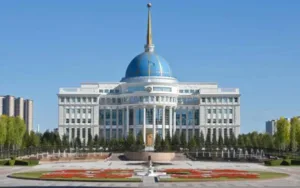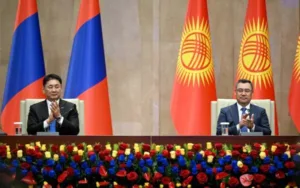
Nearly a month after tensions escalated between Moscow and Baku, diplomatic relations between Russia and Azerbaijan remain strained, with no signs of reconciliation in sight.
The fallout began after Russian law enforcement in Yekaterinburg killed two Azerbaijani nationals—both dual citizens of Russia and Azerbaijan—under disputed circumstances. In response, Azerbaijani authorities detained several Russian citizens, including two journalists from the Russian state media outlet Sputnik. All detainees reportedly bore visible signs of physical assault. Azerbaijan also canceled all Russian-sponsored cultural events and postponed a planned visit by Russian Deputy Prime Minister Alexey Overchuk.
Baku accuses Russian authorities of targeting Azerbaijanis and alleges that the victims died as a result of torture. The Russian side maintains that the incident was a routine police operation and claims one of the men died of a heart condition, denying any ethnic profiling or misconduct.
Both countries summoned each other’s ambassadors and exchanged official protests, while a media war has since erupted online, further inflaming tensions. Public remarks by various officials from both sides have only added fuel to the fire.
This is not the first flare-up between the two nations. In December 2024, a tragic aviation incident—when an Azerbaijani passenger plane was allegedly downed by a Russian missile—killed dozens and triggered a sharp diplomatic freeze.
These events raise pressing questions: Is Russia losing its grip on former Soviet states? Has the Kremlin begun rethinking its foreign policy toward these nations? And could Central Asian countries, much like Azerbaijan, begin asserting their interests more boldly in the Russian sphere?
Moscow's diminishing reach?
A symbolic moment unfolded on July 10 when the presidents of Azerbaijan and Armenia held direct talks in Abu Dhabi—without Russian mediation—for the first time in years. Traditionally, such meetings were facilitated by Russia and hosted in Moscow. Previous efforts by the European Union to mediate had also failed to produce results.
According to analysts, the choice of Abu Dhabi and the absence of Russian involvement sent a clear message to Moscow. Interestingly, Russian media offered scant coverage of the meeting. However, the Kremlin soon launched a discrediting campaign against Armenian Prime Minister Nikol Pashinyan and his administration, particularly following the arrest of Russian-Armenian businessman Samvel Karapetyan, accused of plotting a coup in Armenia.
The broader trend suggests that Azerbaijan and Armenia, like Georgia before them, are actively seeking to distance themselves from Russia’s sphere of influence. Moscow’s weakening grasp now appears to extend beyond the Baltics to the Caucasus and even the breakaway region of Transnistria.
Currently, only Belarus and the Central Asian nations maintain relatively stable ties with Russia. Even these relationships, however, are under strain. Kazakhstan has banned entry to several Russian officials, while Uzbekistan and Kyrgyzstan have summoned Russian ambassadors over discriminatory treatment of their citizens. Tajikistan’s president has also voiced concern over unresolved issues in bilateral relations—indicators that Moscow's dominance is increasingly being questioned across the region.
Red lines blurred
Experts are divided on how far-reaching this shift may be.
Parviz Mullojanov, a political analyst from Tajikistan, points to a consistent decline in Russian influence in recent years. “Even public opinion surveys show a waning appetite for closer ties with Russia,” he says, adding that the Caucasus is especially at the forefront of this realignment.
“Armenia is on the verge of leaving the Russia-led CSTO (Collective Security Treaty Organization), citing Moscow’s failure to uphold defense commitments during the latest Karabakh conflict. In Georgia, over 89% of citizens favor EU membership. Azerbaijan, meanwhile, is drawing closer to Turkiye and remains one of the least economically dependent CIS nations on Russia,” Mullojanov explains.
Conversely, Saifullo Safarov, a political analyst and former deputy head of Tajikistan’s Center for Strategic Studies, believes in the enduring strength of historical and cultural ties between Russia and former Soviet republics. “There is no hostility—these are deeply rooted friendships,” he insists.
Temur Umarov, a fellow at the Carnegie Center in Berlin, offers a middle-ground perspective. He acknowledges a weakening of Russia’s influence but notes it remains significant in some key areas.
“Russia’s leverage over regime stability in Central Asia is still considerable and largely immune to sanctions or diplomatic isolation,” says Umarov says. “But Azerbaijan, given its low dependence on Russia, is freer to pursue an independent foreign policy.”
“Because Azerbaijan isn't tethered to Russia economically or politically, it can align more closely with Turkiye and doesn’t feel the need to overlook Moscow’s missteps,” he adds.
According to Umarov, since the onset of the war in Ukraine in 2022, previously untouchable “red lines” in relations with Russia have started to fade. “Azerbaijan has demonstrated that these boundaries can be tested—or even crossed—to gauge Moscow’s response,” he says.
Russia’s double standards may backfire
According to Parviz Mullojanov, Russia’s geopolitical focus has shifted almost entirely toward its war in Ukraine and confrontation with the West. This has created a vacuum in the post-Soviet space, now being filled by new actors including China, Turkiye, Iran, India, and the Gulf states.
He also highlights the contradictions in Russia’s policy toward migrant workers. While the Kremlin emphasizes the importance of labor migration from former Soviet states, it simultaneously wages a sweeping campaign of repression—marked by police raids, mass deportations, and growing tolerance for radical nationalist groups like the “Russian Community.”
“This approach risks further alienating Moscow’s traditional allies and nurturing widespread anti-Russian sentiment, which will only damage Russia’s long-term interests,” Mullojanov warns.
Can Central Asia push back like Azerbaijan?
So, could Central Asian nations replicate Azerbaijan’s assertiveness in defending their interests and citizens in Russia?
Temur Umarov believes it’s unlikely. “Due to their heavy political and economic reliance on Russia, Central Asian countries simply can’t afford to be as bold,” he says. “They defend their interests where possible, but striking a balance remains difficult.”
Mullojanov agrees, noting that the region’s unique dependencies limit its maneuverability. “For countries like Tajikistan and Kyrgyzstan, labor migration to Russia is vital, which leaves them more vulnerable to Kremlin pressure,” he says. However, he adds that these countries are clearly not looking to return to an era of total Russian dominance.
Saifullo Safarov maintains that Central Asian states do, in fact, stand up for their interests. He cites Tajik President Emomali Rahmon’s landmark 2022 speech in Astana, where Rahmon directly addressed President Vladimir Putin, calling for mutual respect and warning against treating regional countries as mere remnants of the Soviet past.
That speech was seen as a bold challenge and a signal that the regional dynamic was shifting. Russia responded by making surface-level adjustments—boosting cultural and political exchanges—while simultaneously tightening its grip on Central Asian migrants at home.
Will Russia learn any lessons?
Most analysts say no.
Mullojanov argues that there is no real sign of policy change in Moscow. “The Kremlin appears indifferent to the growing dissatisfaction in its neighborhood,” he says.
Safarov adds that Russia’s nationalist-leaning laws may be more damaging to Russia itself than to its neighbors, but also emphasizes that internal policy is Russia’s sovereign domain.
Umarov is even more blunt: “The Russian leadership shows little interest in learning from past mistakes. I suspect that future crises will be managed with the same heavy-handedness we saw after the Azerbaijani plane incident.”
Indeed, despite President Vladimir Putin’s call to express condolences after the plane crash, he never issued a formal apology—a point of contention for Azerbaijan. Similarly, Russia has not acknowledged responsibility for the deaths of the two Azerbaijani citizens in Yekaterinburg.




